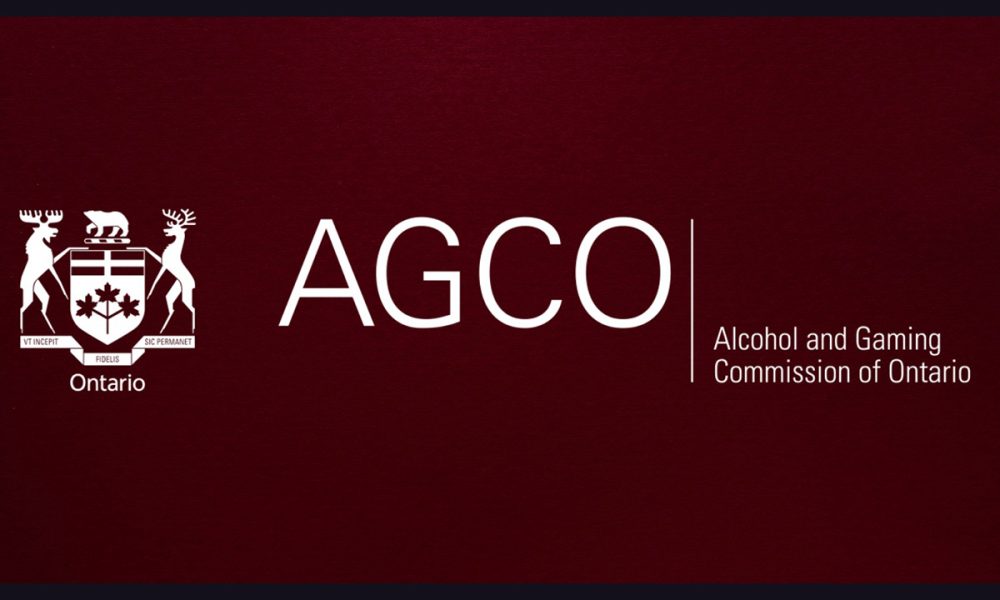Canada
Rivalry Announces Record Fourth Quarter, Year-End 2022, and All-Time High Quarterly Revenue In Preliminary Q1 2023 Results
Rivalry Corp., an internationally regulated sports betting and media company, today announced its financial results for the three and 12-month periods ended December 31, 2022. The Company also announced preliminary results for the three-month period ended March 31, 2023. All dollar figures are quoted in Canadian dollars.
“Our market strategy and operational excellence continues to build upon consecutive record-setting quarters, driving a strong finish to the year and a robust Q1, while simultaneously demonstrating sequential narrowing losses on our path to profitability,” said Steven Salz, Co-Founder and CEO of Rivalry. “Underpinning our growth is significant brand loyalty among the Millennial and Gen Z audience and true product innovation in online betting, enabling every marketing dollar to go further, enhancing retention, and creating a distinctly unique platform. Rivalry continues to be economically rewarded for taking an inventive approach to the betting experience and tailoring it for a demographic with unique consumption habits.”
Full-Year 2022 Financial Highlights
- Betting handle was $232.8 million in 2022, an increase of 198% compared to $78.2 million in 2021.
- Revenue was a record $26.6 million in 2022, an increase of 140% from $11.0 million in 2021.
- Gross profit was $9.8 million in 2022, an increase of $7.6 million or 349% from $2.2 million in 2021.
- Net loss for the year was $31.1 million, compared to a net loss of $24.3 million in 2021. The 2022 net loss includes $8.2 million of share-based compensation expense, a non-cash item, compared to $10.5 million of share-based compensation expense in 2021.
- The Company had $16.4 million of cash and no debt as at December 31, 2022.2
Fourth Quarter 2022 Financial Highlights
- Betting handle was $83.9 million in Q4 2022, a year-over-year increase of 237% compared to $24.9 million in Q4 2021, and up 19% sequentially from the previous record quarterly handle of $70.3 million in Q3 2022.
- Revenue was $9.4 million in Q4 2022, a year-over-year increase of 338% from $2.2 million in Q4 2021, and represented the Company’s highest-ever revenue up to that point. Revenue was up 32% sequentially from $7.1 million in Q3 2022.
- Sportsbook revenue of $7.1 million in Q4 2022 was $1.0 million higher than in Q3 2022, driven by a very strong month in October. Gaming revenue of $2.3 million was up by $1.2 million or 119% over Q3 2022, as the Company began offering a wider set of casino games on its Casino.exe platform.
- Gross profit was $5.0 million in Q4 2022, a year-over-year increase of $4.6 million from $0.4 million in Q4 2021, and up 139% sequentially from $2.1 million in Q3 2022.
- Net loss for Q4 2022 was $12.3 million. The net loss included $6.4 million of share-based compensation, a non-cash expense that is not expected to recur in future periods, as well as non-recurring spending of $1.1 million. Absent those non-recurring items, the Q4 2022 adjusted net loss was $4.9 million3, in line with a trend of narrowing losses over the past four quarters.
First Quarter 2023 Preliminary Results4
- Betting handle for the three-month period ended March 31, 2023 was $120.2 million, an increase of $80.0 million or 199% from $40.2 million in Q1 2022. Betting handle increased by $36.2 million or 43% from the previous quarterly record of $83.9 million in Q4 2022.
- Revenue for Q1 2023 was $12.0 million, an increase of $7.2 million or 151% from $4.8 million in Q1 2022, and up $2.5 million or 27% over Q4 2022 revenue of $9.4 million.
- Gross profit was $5.4 million in Q1 2023, an increase of $4.8 million from $0.7 million of gross profit in Q1 2022, and up $0.4 million or 9% from Q4 2022 gross profit of $5.0 million.
- These results were achieved with a 10% reduction in marketing spend YoY.
- Net loss was $3.5 million for Q1 2023, compared to a net loss of $6.6 million in Q1 2022.
Operational Highlights
- Rivalry obtained licences in its first two fully regulated markets, commencing gaming operations in Ontario on April 4, 2022 and in Australia on May 9, 2022.
- The Company added mobile esports to its sportsbook in March 2022, enabling customers to wager on a variety of competitive esports played on mobile devices.
- The Company entered the casino segment with its first third-party game in Q3 2022 and launched its proprietary platform Casino.exe in the fourth quarter with several additional games.
- Customer registrations increased to approximately 1.5 million by the end of Q1 2023.
- Rivalry’s creator partner network and owned media properties reached a total of 85 million followers, deepening reach, acquisition, and engagement among core target audience.
- Company brand strategy helped maintain market-leading position among next generation of bettors, with Millennial and Gen Z consumers accounting for 97% of active users in 2022.
- Esports betting continues to drive significant growth, representing nearly 90% of sportsbook handle in 2022.
- The Company expanded its casino offering in January 2023 with eight new titles including live dealer and table games, and debuted Casino.exe in its home market of Ontario in March 2023.
- On April 26, 2023, Rivalry announced a private placement for gross proceeds of up to $10 million (the “Private Placement”) with participation from key sports betting, technology, and payments stakeholders, signaling a vote of confidence in the Company’s user economics and ability to execute within this emerging vertical. The Private Placement is expected to close in one or more tranches commencing on or about May 5, 2023.
Outlook
“We have reached an inflection point in the business where the economic return of our strategy and unique position at the intersection of esports and betting has outlined a clear path to profitability,” Salz added. “We are well-positioned to scale efficiently throughout the year, with a collection of near and long-term initiatives that will contribute to our disruptive product and brand.”
Initiatives the Company expects to drive continued growth in 2023 include:
- Expanding our esports offering to deepen our core product, attract new customers, and establish the most comprehensive product globally.
- Continued evolution of our interactive Casino.exe platform and release of additional proprietary and third-party games that cater to our core demographic and further establish a betting experience unique to Rivalry.
- Continued product development, including new betting markets and proprietary platform features, to meet shifting consumption habits of Millennial and Gen Z consumers.
- Launch of a mobile app in our regulated markets to increase accessibility of our product and player acquisition.
- Geographic expansion to increase our addressable market and customer base.
- Expanded brand execution through premium content, creator partner programming, and community activations to enhance customer engagement and retention, solidifying Rivalry’s leadership position among next generation consumers.
- Continuing to grow our investor base through proactive capital markets outreach.
AGLC
Casino ATM Scam in Edmonton Reveals Money Laundering and Drug Links

Law enforcement in Alberta continues to search for the last suspect in a sophisticated fraud operation that targeted ATMs in Edmonton-area casinos and resulted in over CAD 1 million ($720,487) in losses throughout Western Canada.
The Royal Canadian Mounted Police (RCMP) has confirmed that Hisham Ismaeel, 28, remains at large with a province-wide warrant for his arrest. He faces charges of fraud exceeding $5000 and possessing proceeds of crime. Police have already arrested four other men linked to the scheme. Investigators describe the operation as a well-planned effort to exploit financial systems and clean dirty money.
The accused, Elliot Miao, 42, Van Bau Ta, 39, Hassan Jaafar Haydar Ahmad, 37, and Dennis Jones, 42, showed up in the Alberta Court of Justice last week. They face charges from fraud and money laundering to owning criminal property. Miao also has a narcotics trafficking charge after police found cocaine when they searched with warrants.
Investigators claim the group made coordinated withdrawals at several casino ATMs, timing their transactions to avoid getting caught. This action messed up ATM networks in the area and showed flaws in the systems that banks and casinos use to stop misuse.
The RCMP Federal Policing Northwest Region led an investigation that involved six search warrants in Edmonton. The Edmonton Police Service, the Financial Transactions and Reports Analysis Centre of Canada (FINTRAC), Alberta Gaming, Liquor and Cannabis (AGLC), and several banks supported this effort. Officials said the case shows how teamwork between public agencies and the private sector plays a key role in combating modern financial crime.
AGLC representatives pointed out that casino operators in the province must follow strict reporting and surveillance rules under Canada’s anti-money laundering laws. The specific casinos affected remain unnamed, but the Edmonton region has seven licensed facilities. AGLC said its policies helped spot problems and backed the RCMP’s investigation.
Compliance experts say this fraud shows how criminals change their methods to take advantage of weak spots in reporting limits and transaction checks. They claim that casinos, which deal with lots of cash, are still easy targets unless they keep improving their detection systems and teach their front-line workers to notice coordinated actions like several big withdrawals happening one after another.
For now, the case highlights both the money and crime aspects of casino-related fraud. Besides the million-dollar losses, finding drugs during the raids points to a bigger criminal operation where financial crimes and drug dealing overlap.
The post Casino ATM Scam in Edmonton Reveals Money Laundering and Drug Links appeared first on Gaming and Gambling Industry in the Americas.
Bragg Gaming
Bragg Confirms Cyber Attack – Hackers Access Internal IT Systems

Bragg Gaming Group, a leading online gaming technology provider, has confirmed a major cybersecurity incident that compromised its internal IT infrastructure in the early hours of Saturday, August 16, 2025.
The company detected unauthorized intrusion attempts that successfully breached its internal network, triggering an immediate and comprehensive incident response.
Key Takeaways
-
Bragg Gaming Group experienced a cybersecurity breach involving access to internal IT systems.
-
No customer personal data or payment information appears to have been compromised.
-
The company has enacted full containment and investigation protocols.
Details of the Breach
According to a preliminary forensic analysis by Bragg’s internal security team, the attack was a targeted breach aimed at the company’s internal computer environment. While the exact method of intrusion is still under investigation, early indicators suggest a sophisticated exploit of internal network vulnerabilities.
Fortunately, the company’s customer-facing systems, including sensitive user data and financial information, appear to have been unaffected. Bragg’s existing encryption protocols and access control systems successfully prevented the attackers from accessing customer information.
Immediate Response Measures
In response to the breach, Bragg launched a multi-tiered containment strategy, including:
-
Network Segmentation to isolate affected systems
-
Enhanced Monitoring of data flows across its Remote Games Server (RGS) platform
-
Security Audits of critical infrastructure, including the Bragg Hub and PAM systems
-
Engagement of Independent Cybersecurity Experts to assist in incident analysis and system hardening
Bragg’s Security Operations Center has also elevated its alert level, initiating 24/7 monitoring across all server clusters and network endpoints. In addition, company-wide penetration testing is now underway to proactively identify any residual vulnerabilities.
Business Continuity Maintained
Despite the severity of the breach, Bragg reports that its operations remain unaffected. All gaming services, including iCasino and sportsbook offerings across regulated markets, continue to function without disruption.
“While this incident is deeply concerning, we are confident in the rapid and thorough response initiated by our team,” a company spokesperson stated. “We remain committed to protecting our infrastructure, our partners, and most importantly, our players.”
Looking Ahead
As part of its response, Bragg has also launched mandatory security awareness training for all employees to reinforce best practices and prevent future incidents.
Cybersecurity analysts will continue working with Bragg to determine the full scope of the attack, improve system resilience, and maintain the trust of its users and stakeholders.
Bragg’s handling of the incident highlights both the evolving nature of cybersecurity threats and the importance of robust, responsive defense systems in the digital gaming sector.
Source: cybersecuritynews.com
The post Bragg Confirms Cyber Attack – Hackers Access Internal IT Systems appeared first on Gaming and Gambling Industry in the Americas.
AGCO
AGCO Removes Cap on Seller Commission for Charitable Lottery Products

The Alcohol and Gaming Commission of Ontario (AGCO) has updated several lottery policies to remove the cap on seller commission for Paper Raffles and Media Bingo, along with removing the prohibition on Catch the Ace paper lotteries, to align with other charitable lottery products.
Licensed charities may now negotiate commissions directly with sellers and determine commissions, provided they are reasonable and tied to the cost of service provided by the seller.
These updates further the AGCO’s commitment to adopt an outcomes-based regulatory approach and reduce burden for the charitable gaming sector. Local charitable organizations will have greater flexibility to make decisions that best serve their fundraising objectives.
Important Reminders
• Charities must still receive approval for other expenses incurred under their licence and retain receipts for seller commission paid.
• Licensing authorities will not require documentation to be submitted as part of the application process, however, charities are still subject to audit to determine compliance.
• Charities are reminded of their legal requirement to meet their obligations under the Criminal Code and with respect to conducting and managing a charitable gaming scheme.
• As with all licensed charitable lottery events, charities must take the necessary steps to ensure that they are conducting and managing the lottery event within Ontario.
For charitable gaming-related inquiries, email an AGCO Eligibility Officer at [email protected] or call AGCO Customer Service at 1-800-522-2876, Monday to Friday from 8:30 a.m. to 5 p.m.
The post AGCO Removes Cap on Seller Commission for Charitable Lottery Products appeared first on Gaming and Gambling Industry in the Americas.
-

 gaming3 years ago
gaming3 years agoODIN by 4Players: Immersive, state-of-the-art in-game audio launches into the next generation of gaming
-
EEG iGaming Directory8 years ago
iSoftBet continues to grow with new release Forest Mania
-
News7 years ago
Softbroke collaborates with Asia Live Tech for the expansion of the service line in the igaming market
-
News7 years ago
Super Bowl LIII: NFL Fans Can Bet on the #1 Sportsbook Review Site Betting-Super-Bowl.com, Providing Free Unbiased and Trusted News, Picks and Predictions
-
iGaming Industry8 years ago
Rick Meitzler appointed to the Indian Gaming Magazine Advisory Board for 2018
-
News7 years ago
REVEALED: Top eSports players set to earn $3.2 million in 2019
-
iGaming Industry8 years ago
French Senator raises Loot Boxes to France’s Gambling Regulator
-
News7 years ago
Exclusive Interview with Miklos Handa (Founder of the email marketing solutions, “MailMike.net”), speaker at Vienna International Gaming Expo 2018








